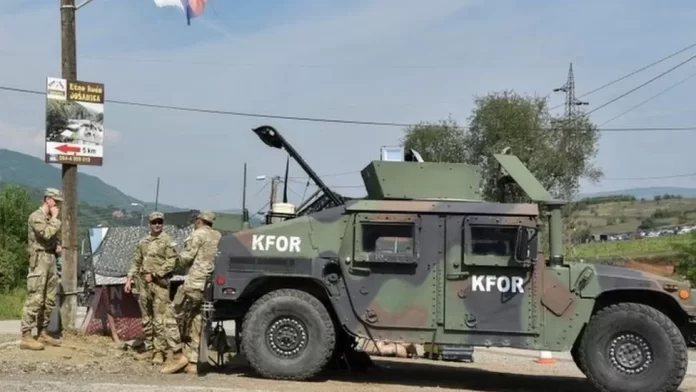On 29 September, the United States warned of an “unprecedented” build-up of Serbian troops and military equipment along Kosovo border. Officials urged Belgrade to withdraw troops immediately.
NATO has indicated it will increase its presence in Kosovo as tensions rise. Serbia’s military build-up came days after a Kosovo policeman was shot dead and another border guard was wounded in a shootout in the country’s ethnically Serb-dominated northern region.
The Serbian government denied involvement in the attack, but Milan Radoicic, deputy head of the main party of Serbs in Kosovo, the Serb List, claimed on 29 September that he took full responsibility for the deadly clashes in the village of Banjska in northern Kosovo. He stated he had acted alone without informing Belgrade.
US National Security Council spokesman John Kirby told reporters on 29 September of a “large Serbian military presence” along Kosovo border.
“We are monitoring a large Serbian military deployment along the border with Kosovo that includes an unprecedented staging of advanced Serbian artillery, tanks and mechanised infantry units. This is a very destabilising development, which has occurred over the past week, and we are calling on Serbia to withdraw forces from the border and lower tensions.”
NATO’s North Atlantic Council met on 29 September to discuss the situation in Kosovo. The Alliance announced that additional forces had been authorised in the region the previous day and that the security presence would be increased if necessary.
NATO has already increased its presence in Kosovo since May, when dozens of people, including NATO Kosovo Force (KFOR) peacekeepers, were injured in clashes between Serbian protesters and law enforcement.
Secretary General Jens Stoltenberg wrote on X (formerly Twitter):
NATO Allies met today and expressed deep concern about tensions in northern Kosovo. NATO’s KFOR mission will always take the necessary actions to maintain a safe and secure environment and freedom of movement for all.
According to a NATO statement, the KFOR Mission maintains an operational presence throughout Kosovo to ensure a safe and secure environment for all Kosovars.
“Since May, we have enhanced KFOR’s presence and posture. Only yesterday the North Atlantic Council authorised additional forces to address the current situation … We stand ready to make further adjustments to KFOR’s posture as required.”
US Secretary of State Antony Blinken spoke with Serbian President Aleksandar Vucic. Vucic wrote on Instagram:
We agreed that it is necessary to de-escalate, as well as regarding the greater role of KFOR, and Serbia will always and certainly support that role.
Kosovo, populated mostly by ethnic Albanians, unilaterally declared independence from Serbia in 2008 after a 1998-99 conflict with Serbian forces that ended with NATO attacks on Serbian targets.
Recent escalating tensions have jeopardised EU-mediated talks between Belgrade and Pristina aimed at strengthening their bilateral relations.
